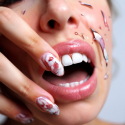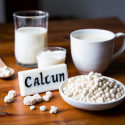Summer Without Allergies: Enjoy the Season to the Fullest!

Summer is a time of fragrant wildflowers, delicious berries and fruits, and outdoor relaxation. However, for many, summer can be a real struggle due to allergies triggered by blooming plants, certain foods, and insect bites.
Allergies are hypersensitive reactions of the immune system to certain substances, which can sometimes be inherited. These abnormal reactions to generally harmless substances may fade over time or persist throughout one's life.
Summer Allergies: Sources of Irritation
Seasonal allergies can be classified based on the source of the allergen and the cause of unpleasant symptoms.
Pollen
Pollen from plants remains one of the main irritants. While fruit trees, poplars, and linden trees have finished blooming, grasses, field and garden flowers, and weeds like ragweed start to bloom, becoming major allergens.
Symptoms of pollen allergy:
- Persistent runny nose (rhinitis)
- Itchy nose and sneezing
- Eye irritation and redness, tearing
- Non-cold-related cough, throat irritation
- Difficulty breathing
- Swelling of the eyes, nasal and throat mucous membranes
Food
In summer, our diet is enriched with fresh fruits, berries, and exotic dishes. While you might be able to predict your body's reaction to familiar fruits like raspberries, strawberries, and currants, exotic fruits during travel pose a greater challenge. The desire to try everything can lead to severe allergic reactions that develop rapidly and significantly impact health.
Symptoms of food-related seasonal allergy:
- Swelling of the nasal and throat mucous membranes
- Digestive issues, bloating
- Skin reactions: redness, itching, dermatitis, eczema, hives
Insect Bites
The risk of insect bites increases significantly in summer. Even a regular mosquito bite can cause skin redness and itching, not to mention the effects of bee, wasp, hornet, ant, and other insect bites.
Symptoms of insect bite allergy:
- Severe redness, swelling, and itching at the bite site and surrounding areas
- Pain, itching, and burning at the bite site
- Rash, hives
- Conjunctivitis, tearing
- Non-cold-related runny nose
- Weakness, dizziness
- Fever, increased temperature
- Difficulty breathing, low blood pressure, confusion
How to Combat Allergies
The severity of symptoms can vary from mild skin redness to life-threatening anaphylactic shock. Therefore, it is crucial to learn how to manage allergies and minimize risks.
Protection from Pollen
To protect yourself from pollen, take the following measures:
- Clean daily with wet methods, avoid opening windows, and use air conditioners for cooling and ventilation.
- Wash bedding, covers, and decorative pillows frequently; avoid carpets as textiles accumulate pollen. Immediately wash clothes and wipe shoes when coming indoors.
- Replace curtains with roller blinds that are easier to clean.
- Wear a medical mask and sunglasses outdoors.
- Avoid areas with high pollen concentrations: a picnic on the beach is preferable to one in the park or forest for allergy sufferers.
Avoiding Food Allergies
To prevent atypical reactions to fruits:
- Do not overeat potentially allergenic foods—eat even familiar berries, vegetables, and fruits in small portions.
- Observe seasonality: early July watermelons and melons may contain harmful chemicals.
- Be cautious with exotic fruits and vegetables while traveling—try small pieces and monitor your body's reaction.
Protection from Insect Bites
To protect yourself from insect bites:
- Use protective sprays and creams.
- Avoid areas with a higher risk of encountering insects—beehives, blooming fields, and gardens. Remember, insects are especially abundant near fragrant plants.
- Children are more prone to allergies. If a child is stung by an insect or receives multiple bites, seek medical attention—many insects inject venom into the wound, and with each bite, the body's intoxication increases.









